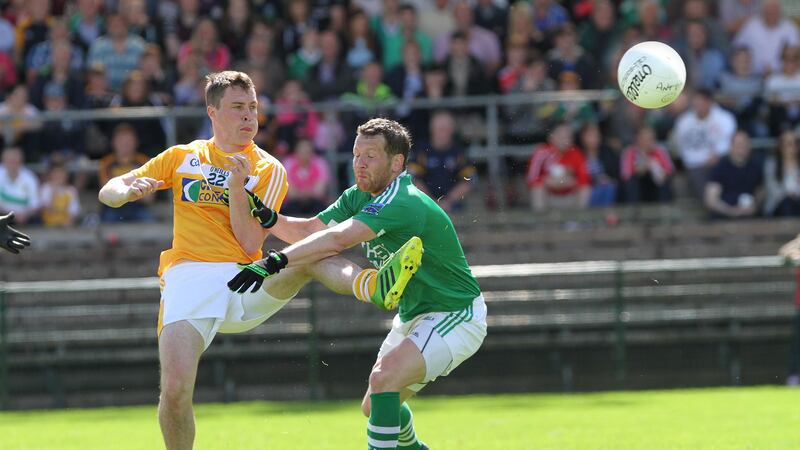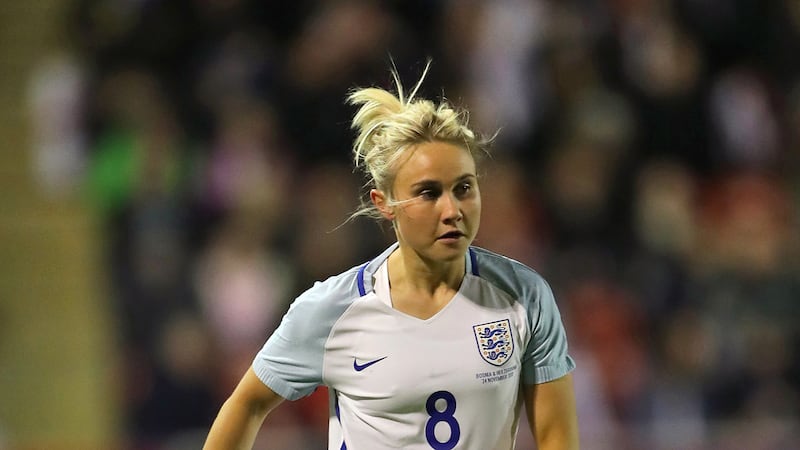THE bewildering performance of county boards, the staggering uselessness of the Official Guide, and the utter insanity of the GAA is always thrown into sharp focus at this time of the year.
This is the highpoint of the Championship. Qualifier fixtures are coming thick and fast and entire seasons hinge on the outcome of the next few games. Everything is at stake.
For a moment, it’s worth considering the investment, financial and human, which is put into a county team.
For example, the typical county board will spend approximately £500,000 on its various panels. The vast majority of that money will be channelled into the senior squads. It’s a huge lump of cash.
Then there are the players. Selected to represent their counties, these amateur sportsmen sign up to a semiprofessional programme. At the bare minimum, they train four evenings a week. In counties like Donegal, they will do weights sessions in the morning and train again in the evening.
And let’s not forget the frequent weekend sessions, or in the case of Armagh, frequent weekend training camps. Given the huge sums of money involved and the massive sacrifice made by players and management teams (some of whom are not paid), it would seem entirely obvious that officials would make strenuous efforts to ensure that the county team is given the best opportunity possible to produce its best performance.
Why would a county board pump about a quarter of a million pounds into a squad, ask players to put their lives on hold, then schedule a raft of club fixtures which could result in a third of the first team getting injured, leaving them unavailable to play in a Qualifier match? Bonkers? Of course it is.
But that’s precisely what happened in Derry last year. The absence of proper rules and the lack of governance from county boards and Croke Park is creating perennial chaos.
In Antrim, the joy generated by the victory over Laois was diluted by the decision of three St Gall’s men to play a club match the night before the trip to Portlaoise. The three players were dropped. CJ McGourty said the St Gall’s men were put in an impossible situation.
The club game was a relegation fixture. St Gall’s were struggling for numbers, and the trio was asked to play. The county board has since claimed it was willing to change the fixture. Maybe so, but in the end, it was the three players who suffered.
In Tyrone, a different regime is creating a different set of problems. Last week, the 31-year-old Dermot Carlin announced his retirement from county football. After spending so many months training with Tyrone, it’s difficult to fathom why players quit when the season reaches its peak.
Carlin revealed the frustration faced by squad players who don’t get game-time for club or county. Outlining the reasons which contributed to his retirement, the Killyclogher man said: “We played Omagh [in a club league match] and I wasn’t allowed to play because the Limerick game was coming up. Then we played Limerick and I didn’t play.
“At my age, I need to be playing football. I just need to be on the pitch.”
It needs to be stressed these issues aren’t confined to the counties which have been mentioned. This is a nationwide contagion. But while the problems are causing huge upheaval and often intense distress, there is no real urgency about the search for a solution.
A major part of the problem is caused by the profound inanity of the GAA Rule Book. Rule 6.21 states: “The period of time during which Senior Inter-County Players shall not be expected to fulfil Inter-Club Championship Fixtures prior to Inter-County Championship Games, in the same Code, shall be as follows: Senior Inter-County Championships: (1) All-Ireland Finals - maximum 20 days. (2) All other Games – maximum 13 days.”
Rule 6.21 is designed to ensure that county players don’t play club games in the 13 days prior to a Championship match. The rule needs to be re-written. It should simply state that county players are not expected to fulfil inter-club fixtures during the 13 days before an inter-county Championship match. That would stop all the madness caused by league fixtures.
The new rule would prevent players from being landed in the Catch-22 situations where if they play for their club they risk getting injured, but if they don’t play for their club, they are considered selfish and disloyal. County boards should also consider the implications of linking league status to the championship grades in which a club competes.
The bulk of discord caused by club fixtures stems from fear of relegation and demotion from the senior to the intermediate Championship. Remove that link between the league and club championship, allow teams to elect the grade that they want to play in, and a vast array of problems are solved instantly. The benefits would be immense. Club league games could go ahead without interruption and club players would get a regular supply of fixtures. Meanwhile, the county player, routinely riddled with guilt and frustration, can gain some peace of mind.
If the GAA at provincial and central level is sincere about its commitment to club competitions, then all parties are obligated to streamline the inter-county calendar. If the vast majority of counties were knocked out of the Qualifiers by mid-July, there would be ample time for clubs to have unfettered access to their county personnel.
It needs to be acknowledged that the fixtures conundrum is complex. But inaction and weak leadership by GAA officialdom is arguably a bigger problem. Doctors differ and patients die. In the GAA, the doctors aren’t even discussing a potential remedy








